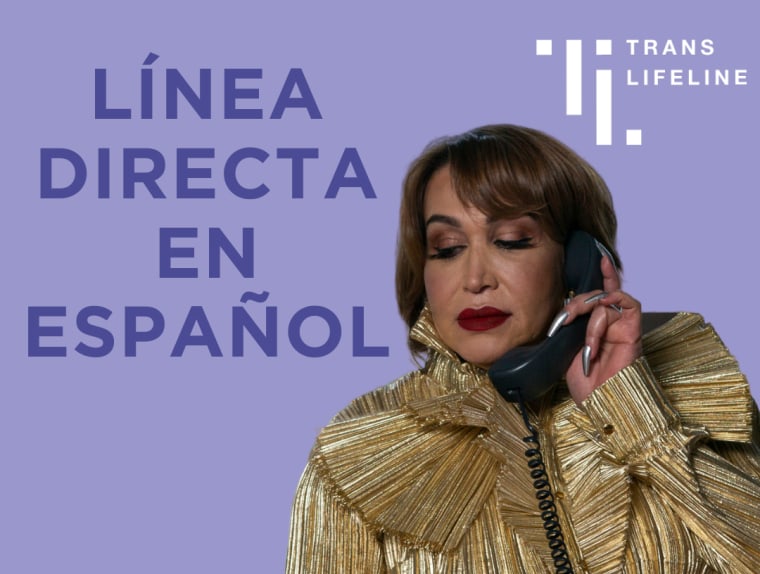In 2018, the nation's only transgender-specific suicide prevention hotline started tracking an alarming trend. Trans Lifeline was getting call after call from trans people in serious crisis whom its volunteers couldn't always help.
From 2018 to 2019, the hotline took 23 times more calls from Spanish speakers than in previous years. Staff members and volunteers saw a 146 percent spike in calls from trans immigrants and a 386 percent increase in calls from Latinx trans people. Many of its hotline operators, however, couldn't speak Spanish, leaving many trans callers without an affirming place to call during a crisis.
This week, the nonprofit said that won't happen again. On Wednesday, Trans Lifeline launched an all trans-staffed Spanish crisis hotline.
T Peña, Trans Lifeline's bilingual services coordinator, said the move is critical to making sure the group's resources go to those who need them most.
"We expect as we partner with organizations that are Latinx, organizations that deal with immigrant issues, we hope that they will be able to pass us on as a potential resource and for us to be able to partner with them to help trans Latinx folks," Peña said.
It's a substantial expansion for the six-year-old organization, which started as a small team of crisis response volunteers and has flourished into a fully staffed nonprofit that distributes grants and connects callers to resources.
Yana Calou, director of communications for Trans Lifeline, said the group is the largest provider of direct services to transgender people in North America. It's also unique in that it's entirely trans-operated; callers can be sure that the voice on the other end is that of another trans person.
Perhaps most significantly, Trans Lifeline won't call 911 or the police without consent from callers. Peña said the policy is about making sure callers feel safe and know they have choices during a crisis.
"We know that our community is especially vulnerable when they do interact with the police, and that could end up very terribly for someone," Peña said.
The 2015 U.S. Transgender Survey, conducted by the National Center for Transgender Equality, found that 58 percent of transgender people reported being mistreated by law enforcement. Of those who were arrested, 22 percent said they believed it was because they were transgender. A quarter of Latina trans women reported that police they interacted with also assumed that they were sex workers.
Studies show that extreme discrimination, economic hardship and family rejection contribute to higher suicide risk in trans communities. The 2015 survey also found that 40 percent of respondents had attempted suicide. Trans Lifeline leaders say that while their work started as simply responding to emergency hotline calls for fellow trans people, they recognized over time that it was tied to economic justice for their community.
In 2017, the organization merged with the Trans Assistance Project and started offering microgrants to trans people seeking name changes. Since then, the group has distributed over $100,000 to trans people to update their IDs.
Callers have also increasingly asked about trans legal services.
"There is an increase in anti-immigrant and anti-trans sentiment in the U.S. right now, and that's being reflected in the callers that are calling us," Peña said. "They're worried about their [immigration] status. They're worried about access to resources. They're worried about an increase in police violence and surveillance in their communities."
Calou said, "We're also taking more calls directly from trans folks in detention centers — and have seen a rise in those."
Because people in immigration detention might have only one chance to reach someone by phone, Trans Lifeline wants to make sure the Spanish hotline is operating 24/7. The new line will be staffed by 10 volunteers, as well as full-time staff members, and it will grow as the organization recruits transgender Spanish speakers.
Spanish services became available Wednesday. Callers can ring Trans Lifeline's old number (877-565-8860 in the U.S. or 877-330-6366 in Canada), and they will have the option of choosing English or Spanish.


